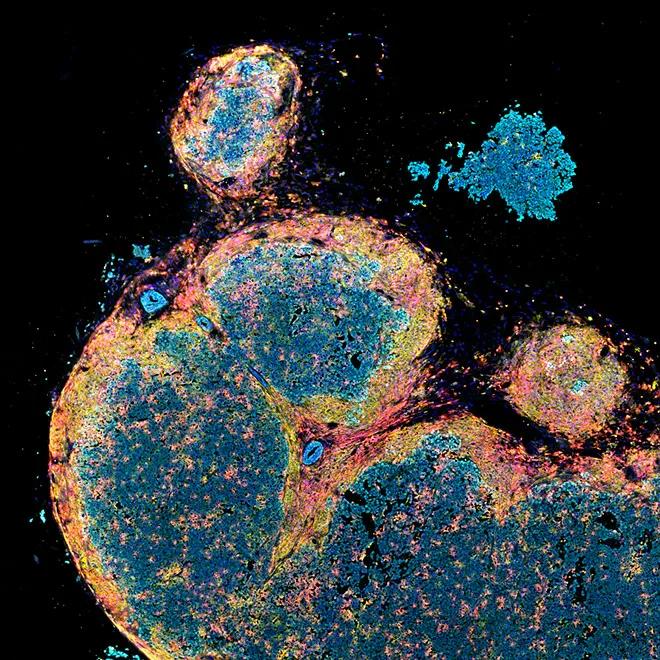The Jackson Laboratory (JAX) is an independent, nonprofit biomedical research institution, established in 1929 under the then-novel premise that cancer is a genetic disease. JAX been a National Cancer Institute-designated basic laboratory cancer center since 1983, and our focus has been on deciphering the complex genetics of cancer and to design precision models of the disease. Our one research program, “Genetic and genomic determinants of aging and cancer,” combines our technical and computational expertise with our unique knowledge of mouse models and of human cancer genomics to identify precise therapeutic interventions to prevent and to treat cancers.
The JAXCC comprises approximately 35 members across two campuses with multidisciplinary expertise who are united in research aimed at understanding and targeting the genomic complexity of cancer.
Service is embedded in our mission. We believe that independent thinking with a collective heart and common goals is a powerful force. Though we started in a small place, our history is long, our importance is secure, our presence is globally recognized, and our vision is daring.
We discover precise genomic solutions for better cancer medicine through interdisciplinary research. We empower others in the global biomedical community in their quests to reduce the burden of cancer on human health through our unique animal and information resources and through educational outreach programs. We translate basic cancer research findings to benefit patients through deep partnerships with national, academic, and community clinical entities.
Our cancer center seeks to discover precise genomic solutions for cancer medicine by vectoring basic discoveries towards human impact. We realize this vision by focusing on complex genetics and functional genomics, by engaging advanced technologies in scale, and by facilitating integration across disciplines. Our unique expertise in the development of powerful animal model platforms is complemented by a new translational capacity which iteratively will refine solutions for precision medicine.
